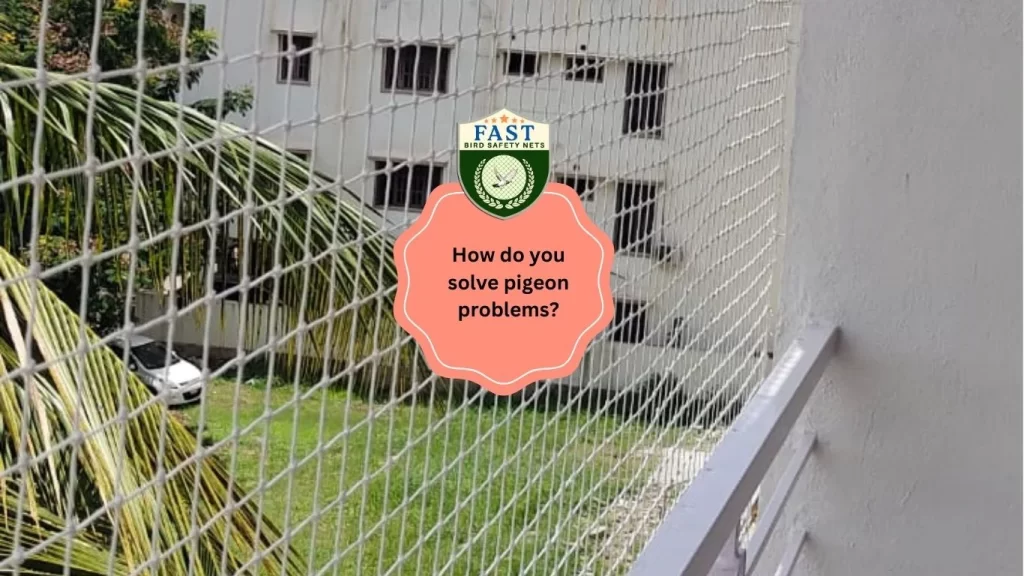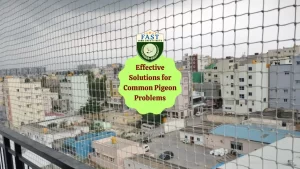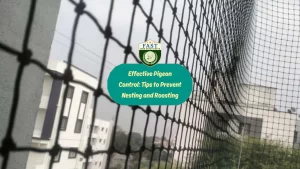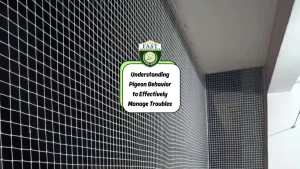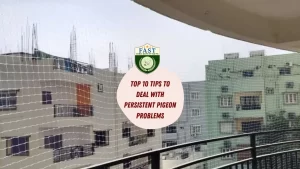Pigeon problem can be a persistent issue for property owners, causing damage, creating unsanitary conditions, and posing health risks. Fortunately, there are various solutions available to address these problems and effectively manage pigeon populations. In this guide, we’ll explore a range of solutions, including deterrents, repellents, physical barriers, and habitat modification techniques. Among these solutions, bird netting and bird spikes stand out as highly effective methods for long-term pigeon control.
Understanding Pigeon Problems:
Pigeons, also known as rock doves, are adaptable birds commonly found in urban areas. Their ability to thrive in diverse environments has made them a prevalent nuisance for property owners. Pigeon problems typically manifest in the following ways:
Roosting and Nesting: Pigeons prefer to roost and nest in elevated areas such as building ledges, rooftops, balconies, and attic spaces. Their nesting activities can lead to property damage and unsightly messes from droppings and debris.
Health Hazards: Pigeon droppings contain pathogens that can pose health risks to humans, including respiratory issues, skin infections, and diseases such as histoplasmosis and cryptococcosis.
Property Damage: Pigeon droppings are corrosive and can cause damage to building materials, including concrete, metal, and paint. Additionally, nests built by pigeons may clog drains, block ventilation systems, and create fire hazards.
Noise Pollution: Pigeons are vocal birds and can create noise disturbances, especially during their mating and nesting seasons. Their cooing and flapping can disrupt the peace and quiet of residential and commercial areas.
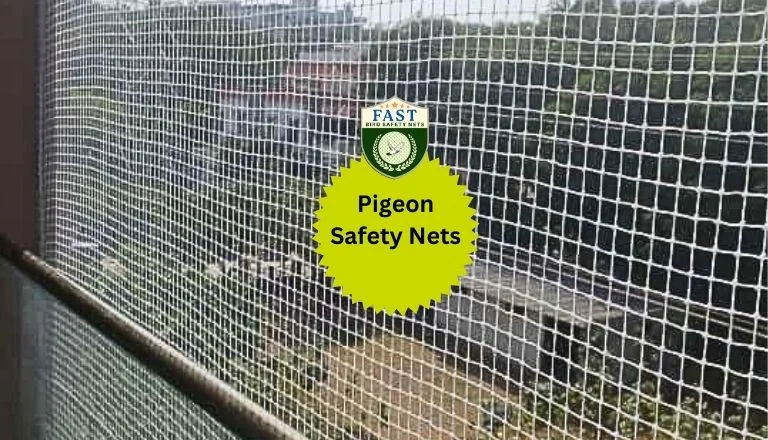
Solutions for Solving Pigeon Problems:
Deterrents:
Visual Deterrents: Install visual deterrents such as predator decoys, reflective tape, or scare balloons to deter pigeons from roosting or nesting in specific areas.
Noise Deterrents: Use sound deterrents, such as ultrasonic devices or bird distress calls, to discourage pigeons from congregating in unwanted locations.
Motion-Activated Devices: Install motion-activated devices, such as sprinklers or noise emitters, to startle pigeons and discourage them from frequenting certain areas.
Repellents:
Chemical Repellents: Apply chemical repellents, such as bird gels or sprays, to surfaces where pigeons roost or perch. These repellents create an unpleasant texture or taste that deters pigeons from landing.
Natural Repellents: Use natural repellents like citrus sprays, chili powder, or vinegar solutions to create odors or tastes that pigeons find unpleasant.
Physical Barriers:
Bird Netting: Install bird netting or bird mesh to create a physical barrier that prevents pigeons from accessing specific areas, such as balconies, courtyards, or rooftops. Bird netting is highly effective and humane, providing long-term protection.
Bird Spikes: Install bird spikes on ledges, sills, and other surfaces to prevent pigeons from landing or perching. Bird spikes are a non-lethal deterrent that makes surfaces uncomfortable for pigeons without causing harm.
Habitat Modification:
Food and Water Management: Remove food and water sources that attract pigeons, such as open garbage containers, pet food left outdoors, or standing water. Store food securely and keep outdoor areas clean.
Vegetation Control: Trim trees, bushes, and shrubs near buildings to reduce perching and nesting opportunities for pigeons. Remove overhanging branches that provide access to rooftops or balconies.
Professional Assistance:
Pest Control Services: Seek assistance from professional pest control services specializing in bird control. These experts can assess the extent of the pigeon problem and recommend targeted solutions tailored to your property.
Bird Netting and Bird Spikes: The Best Solutions
Among the various solutions for solving pigeon problem, bird netting and bird spikes emerge as highly effective methods with several advantages:
Bird Netting:
Comprehensive Protection: Bird netting provides comprehensive coverage and protection by creating a physical barrier that prevents pigeons from accessing designated areas.
Humane Solution: Bird netting is a humane method of pigeon control that does not harm the birds. It simply deters them from landing or nesting in specific locations.
Long-Term Effectiveness: Bird netting offers long-lasting protection and is durable enough to withstand outdoor elements such as sunlight, rain, and wind.
Versatility: Bird netting can be customized to fit various structures and configurations, making it suitable for balconies, rooftops, courtyards, and other areas.
Bird Spikes:
Non-Lethal Deterrent: Bird spikes provide a non-lethal deterrent that discourages pigeons from landing or perching on surfaces. The spikes create an uncomfortable barrier without causing harm to the birds.
Low Maintenance: Bird spikes require minimal maintenance and are easy to install on ledges, sills, and other surfaces. Once installed, they provide continuous protection with little upkeep required.
Aesthetic Considerations: Bird spikes are discreet and blend seamlessly with the architecture of buildings. They are available in various sizes and colors to match the aesthetics of the property.
Cost-Effective: Bird spikes are a cost-effective solution for long-term pigeon control, offering reliable protection without the need for frequent replacements or maintenance.
Conclusion:
Solving pigeon problem requires a combination of strategies tailored to the specific needs of each property. While deterrents, repellents, and habitat modification techniques can help mitigate pigeon activity, bird netting and bird spikes stand out as highly effective solutions. By implementing these physical barriers, property owners can enjoy long-term protection against pigeons while maintaining the safety, cleanliness, and aesthetics of their buildings.

